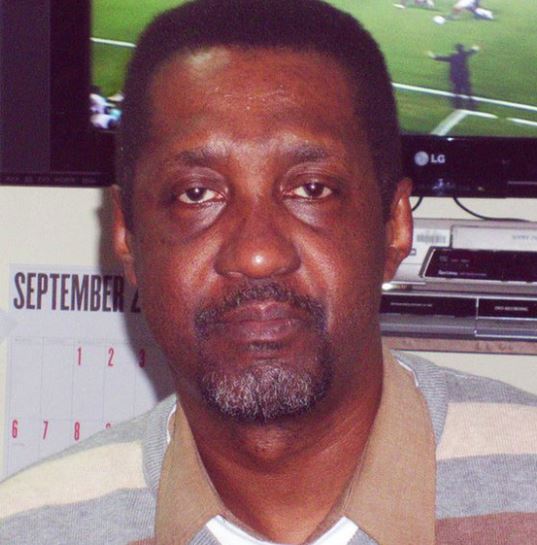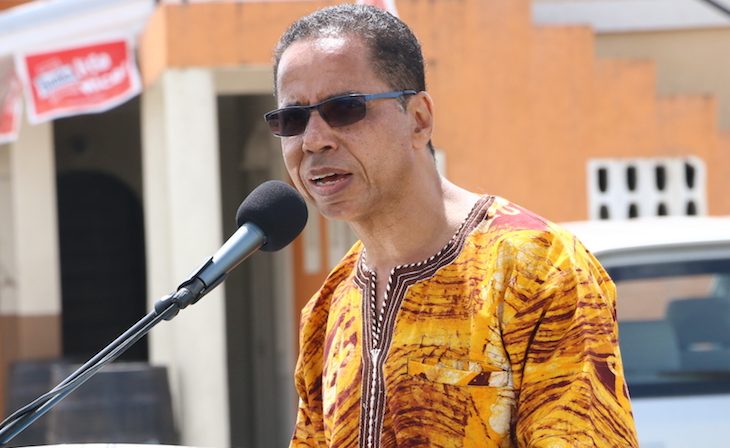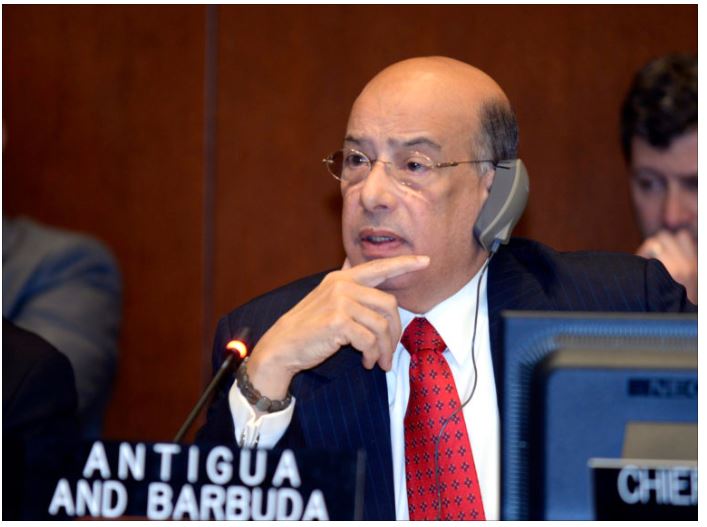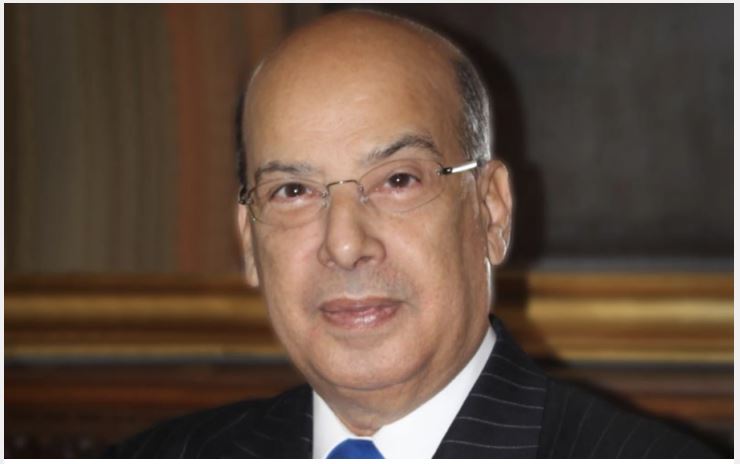By Mike Jarvis
There’s an intensity surrounding Montserrat’s 2019 election that rivals similar events in the island’s recent history.
Voters in the British Overseas Territory go to the polls on Monday November 18th
That there are a record 35 candidates including 10 independents vying for the nine parliamentary seats in an island with a population of around 4,600 speaks volumes about the state of the body politic.
The ruling People’s Democratic Movement (PDM) is defending a slim 5-4 majority reduced from a convincing 7-2 victory margin secured in its first electoral run in 2014.
Now, 28 candidates from three parties along with 10 independents are snapping at PDM’s heels.
In a depressed UK-aid-dependent economy where the incumbent PDM government has a tenuous one-seat majority, its opponents think power is theirs for the taking.
Fractures within the government could be responsible for the large number of candidates in the elections, especially the unusually high turnout of independents.
The PDM is being targeted, in part for questions about its stewardship over the past five years as it seeks a second term, as well as weak spots seen in its internal structure.
The government is led administratively, albeit in its current pre-election lame-duck mode, by Premier Donaldson Romeo.
Its challengers see it as a sitting duck because while Romeo might still be de facto premier, in the political leadership where the real power lies especially at election time, it’s Minister for Communications, Works, Labour and Energy, Paul Lewis who is now in the driver’s seat.
The ruling PDM has had a roller-coaster ride in government, but that has been more pronounced in its internal upheavals.
Within a year of a shock and overwhelming victory over the then-ruling Movement for Change and Prosperity (MCAP) led by Reuben Meade (who has since retired – rather dramatically and unexpectedly – after a short stint as opposition leader), rising PDM star and second-highest vote-getter in the 2014 polls, Dr Ingrid Buffonge, had quit the party and crossed the floor.
That reduced the PDM’s stomping 7-2 majority over MCAP in parliament to 6-3.
It was further whittled down to hang by a tenuous 5-4 thread when Greg ‘Saga’ Willock, parliamentary secretary assigned to the Ministry of Youth and Sports, walked out in October last year.
The ruling PDM is fielding seven candidates for the nine seats at stake.
Premier Romeo is not one of them, having lost a last-minute pre-election internal leadership vote, the timing of which the ruling party has struggled to explain.
The crushing finality of that vote (6 to 2) with only Deputy Premier Delmaude Ryan voting for him along with Mr Romeo’s personal vote – and coming as it did just shortly after he’d had announced the election date just a day before the deadline – reverberated into the ensuing election campaign.
Mr Romeo is running as an independent.
Ironically, Premier Romeo survived a no-confidence motion triggered by Dr Buffonge last year. One year later, almost to the day, he could not stave off a damning verdict by his parliamentary colleagues who had backed him then.
Another noteworthy absence from the PDM line-up is former caucus member and until recently Speaker of the Legislative Assembly, Shirley Osborne.
The sister of PDM’s David Osborne (both offspring of late chief minister John Osborne), she is also running as an independent.
But what the party in power is aggressively pushing to hold onto to its base, win back doubters and win over converts, is the opportunistically (for it) timed announcement of a long-awaited major capital project funding injection by the British government.
Recently announced, it amounts to $EC 200 million and has become a pivotal campaign issue across the board.
In fact, PDM has sought to capitalise on it with a rather clumsy advertisement purporting to suggest that the British government might have ‘rewarded’ PDM with the allocation of the funds rather than MCAP.
That money is intended for a series of vital long-overdue, much-debated, excessively-consulted projects intended to set Montserrat on a path to recovery since the economic and social dislocation caused by the eruption of the island’s Soufriere Hills volcano between 1995 and 2010.
A new seaport including a breakwater, new hospital, relaying of an undersea fibre optic cable, housing, road network improvement and airport upgrades are included in the British funds to be disbursed over several years.
These projects have been subjected to a series of delays over the past several years spanning several British and local governments.
This will be the eighth Montserrat government since the volcano erupted.
It’s an impressive aid commitment by any stretch of the imagination for which the ruling party – now under Paul Lewis – is keen to take political credit for, and which its former leader Romeo, now an independent candidate, is competing to claim.
Political polling is not widely prominent in Montserrat – or necessary for that matter. In a population of just over 4,600 and voter base of around 3,000, voter targeting, while not following the rigid science required in larger communities and countries, nevertheless requires particular local knowledge.
This revolves around three critical Fs; family, friends and the foreigners vote.
Montserrat has a large non-national population, especially from the Caricom member states who will have acquired voting rights as Commonwealth citizens under the islands 2010 Constitution.
The Montserrat Statistics Department records in a 2018 study that almost half of the resident population were non-nationals at around 45%.
Of that, a significant number are adults from Commonwealth member countries who would have met the voter qualification requirements, many having resided oh the island for well over 10 years.
Commonwealth citizens require a three-year residency.
With over half the pre-volcano indigenous population displaced to the diaspora and subsequently disenfranchised since the eruption, the non-national vote has become an influential and much sought-after bloc.
It’s said to have had a major role in favour of the PDM in the 2014 election, largely through the campaigning efforts of its former political leader Romeo.
Whether PDM can hold on to that bloc, fight off its opponents and hold on to power is the $EC 200 million question in next Monday’s election, November 18th.
The party is fielding only seven candidates while MCAP which it unseated in 2014 is the only party with a full slate of nine.
The debut of the new Montserrat United Labour Party (MULP) with two former MCAP stalwarts at the helm, adds another element to the possibilities of outcomes for 2019.
When one considers the 10 independent candidates with some very strong potential vote-getters among them, next Monday’s poll is all to play for and just about anyone’s call.
A large voter turnout is anticipated from an electorate expected to be around 3,000 in the island’s post-volcano single-constituency, nine votes-per-person system.
Given the number of candidates, 35 in all, there is much talk about the likelihood of a coalition.
While the outcome of the 2014 election was unexpected, Monday’s 2019 polls may very well yield some major surprises.
(Michael (Mike) Jarvis is a London-based freelance journalist covering Caribbean and international affairs. Mike is a former Senior Producer with the BBC World Service, Producer at Radio Netherlands, and correspondent for CANA/CMC, AP and Voice of America)




